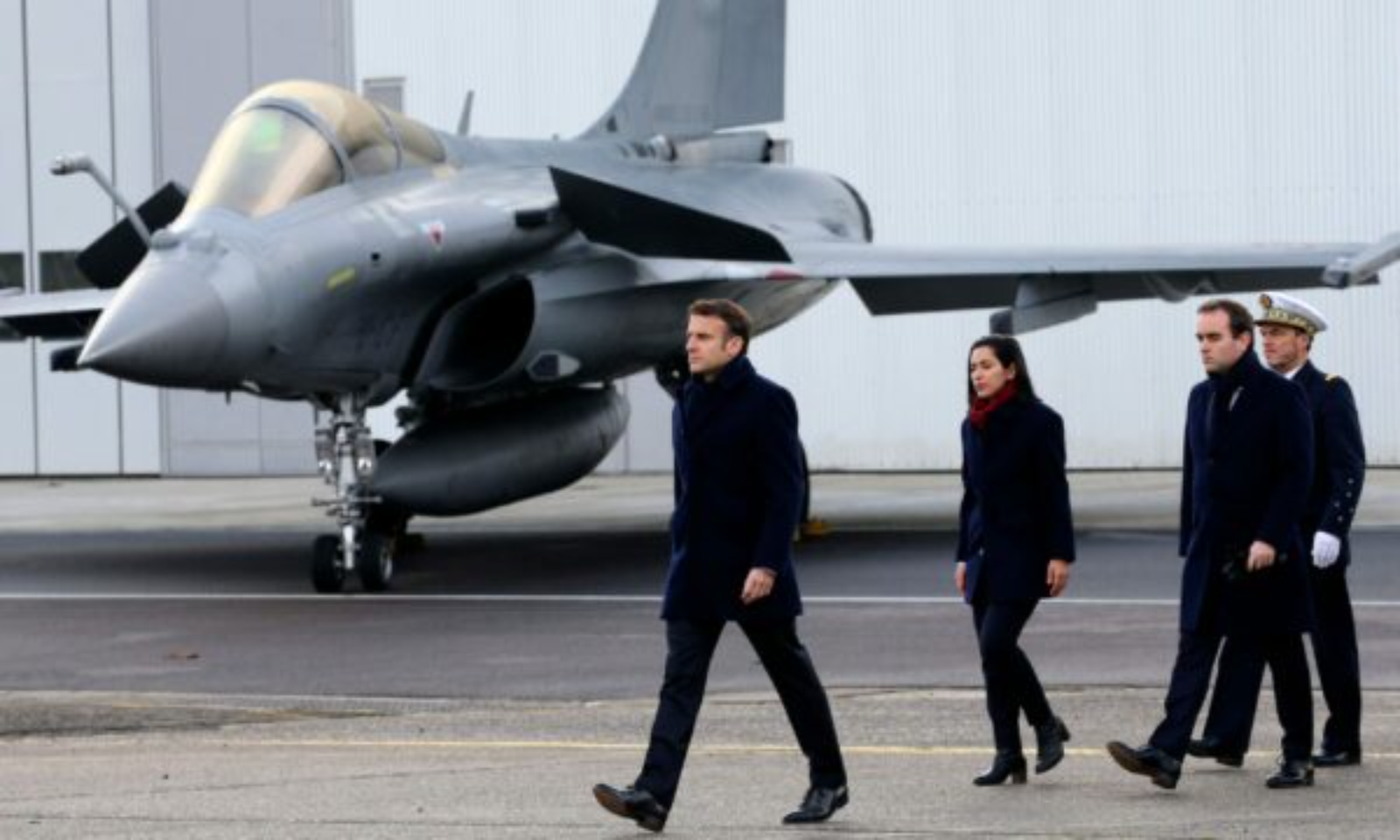Editorial by French Newspaper “Le Monde”
No one questions the benefits to France and Europe from equipping the Serbian Air Force with aircraft. However, we must hope that every precaution has been taken to protect its technology and functions.
The multipurpose role of the Rafale fighter jet, built by Dassault Aviation, is finally achieving the success it had awaited abroad. It heavily influences French arms exports, which have elevated France to the second position globally in terms of export value, according to the latest report by the Stockholm International Peace Research Institute published in March. Although far behind the United States, France is now ahead of Russia.
Dassault Aviation’s order book is so full that the manufacturer is struggling to meet demand. The latest contract was announced with great fanfare on Thursday, August 29, in Belgrade, where President Emmanuel Macron had traveled. For 24 hours, he set aside his search for a French Prime Minister to attend the signing of the sale of 12 Rafales to Serbia for a sum approaching 3 billion euros.
While the commercial success of this operation – which has been in the making since the sale of 12 more aircraft three years ago to Croatia, Serbia’s regional neighbor and rival – is undeniable, its diplomatic dimension is much more controversial. From the outset, the project has been considered sensitive, and rightly so, due to Serbia’s ties with Vladimir Putin’s Russia.
Serbia, a candidate for European Union (EU) membership, does not implement the sanctions imposed by Europeans on Moscow following the invasion of Ukraine. Unlike EU airlines, Air Serbia continues to fly to Moscow. Belgrade has also ordered attack helicopters and air defense batteries from Russia and China.
Necessary Precautions
The Elysee is defending exactly the opposite argument to justify the sale of the Rafale, viewing it as a means to “anchor Serbia in Europe,” rather than letting it slip into a grey area that Moscow and Beijing are using to exert their influence. The purchase of Rafales to replace Serbia’s aging fleet of Russian MiG-29s marks a “strategic,” “historic,” and “significant” shift, argued the French president. He is convinced that the “Rafale club,” which Serbia joins along with Greece and Croatia, could “contribute to peace in Europe” and foster regional integration.
No one will dispute the benefits to France and Europe from equipping the Serbian Air Force with French, rather than Russian – or even American – aircraft. Such a sale implies a lasting connection with the producing country, involving training, maintenance, and spare parts supply. But we must hope that all necessary precautions are in place to ensure the protection of the technology and knowledge embedded in the Rafale, in a country where Russian nationals are free and where Chinese and Russian air defense manufacturers will have the opportunity to verify their performance during downtime.
Finally, the most powerful driving force behind Serbia’s integration into the European fold is not found under the Rafale’s canopy, no matter how capable it may be. The main obstacles to this rapprochement are the nationalism and autocratic leadership of President Aleksandar Vučić, who silences the press, mistreats opponents, and incites unrest in Kosovo, the independence of which he rejects. Unfortunately, President Macron had nothing to say about all this on Thursday in Belgrade.







